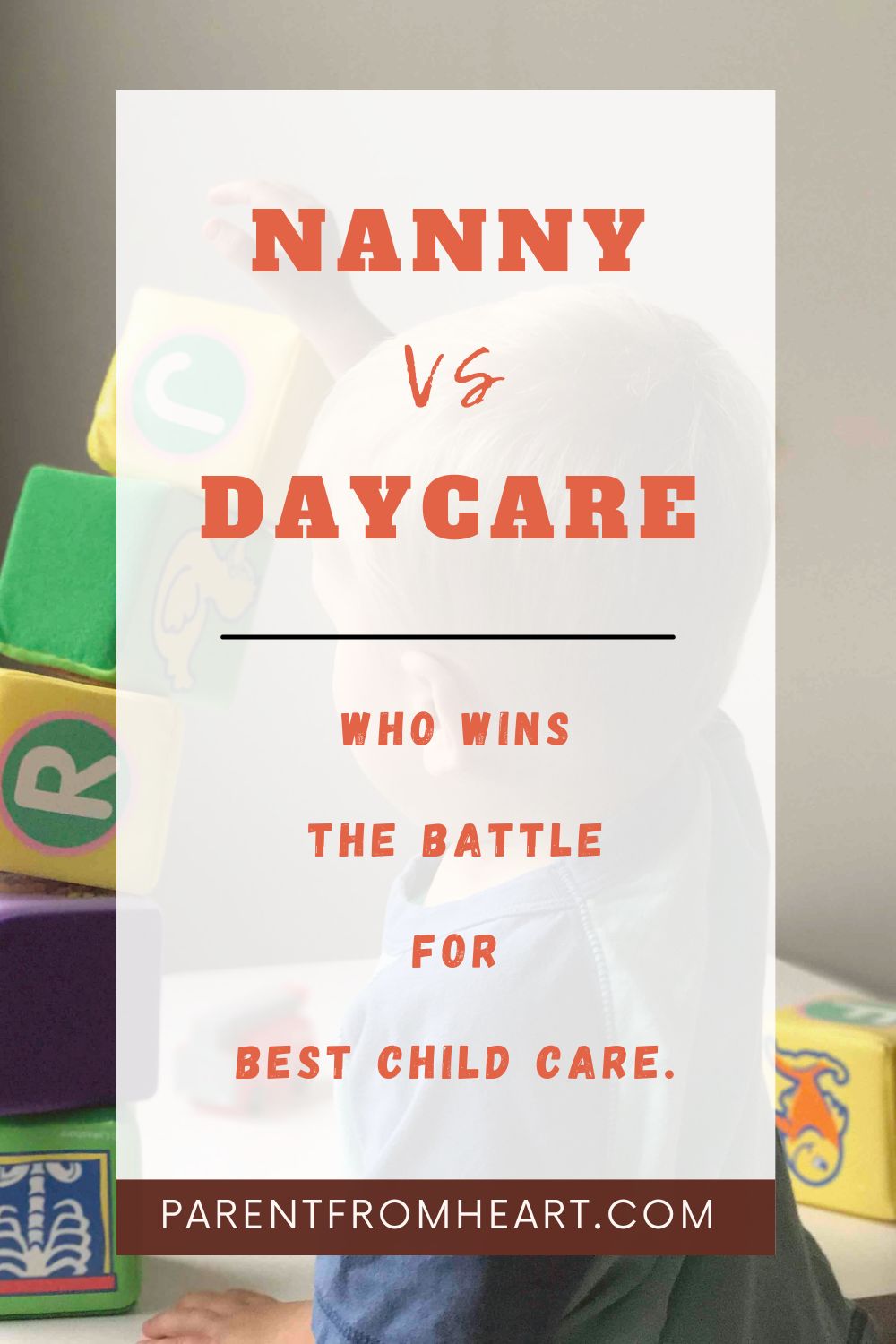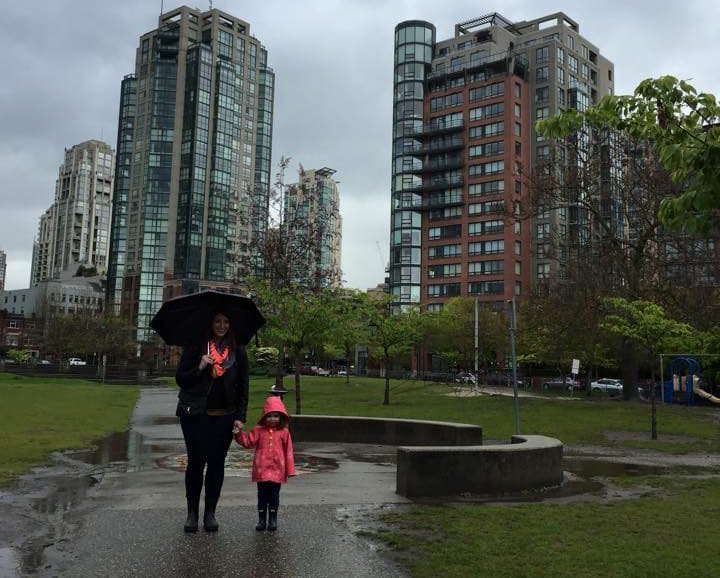Table of Contents
- What Does a Nanny Do?
- The Upside of Hiring a Nanny
- The Downside of Having a Nanny
- Is a Nanny Different from a Baby Sitter?
- Discovering Daycare
- The Benefits of Daycare
- The Drawbacks of Daycare
- Nanny vs. Daycare: A Comparison of Costs
- How to Pick the Best Child Care
- 5 Tips on How to Choose Your Child’s Caregiver
- There’s a Childcare Option for You
Many parents who work full-time have one thing in common – childcare woes. Choosing who will care for the kids while you’re at work can be nerve-wracking, especially when the demands of parenting and careers get overwhelming. Several questions may arise, like, “Can we afford it?” “Is the caregiver trustworthy?”, “Is it near the office?” We know the struggle, so we did some digging to present you with information that will settle the nanny vs daycare debacle.
What Does a Nanny Do?
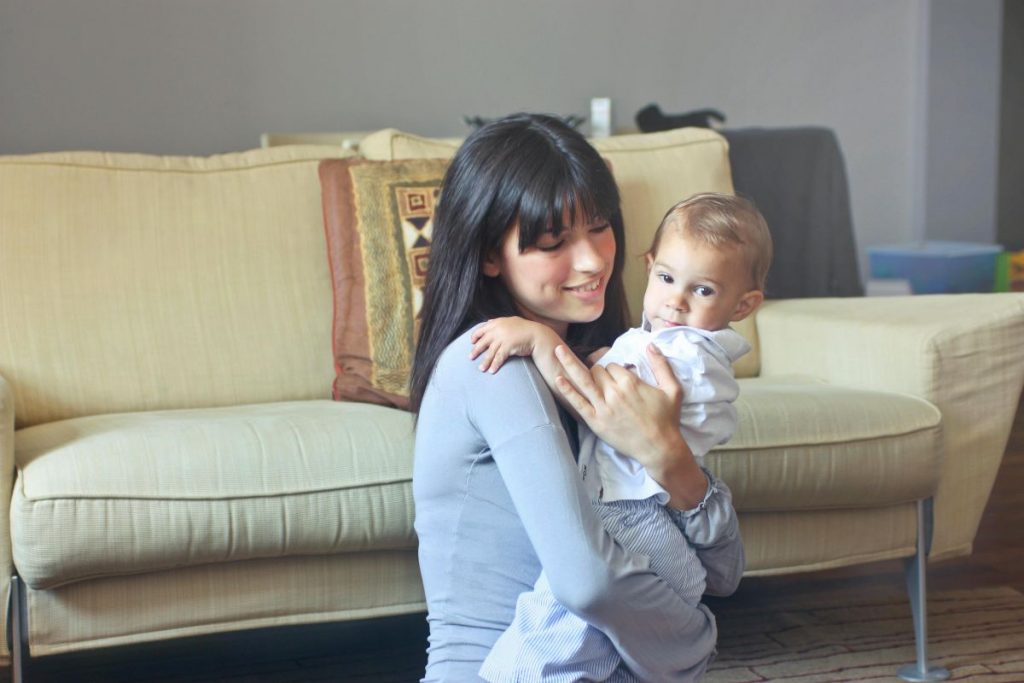
A nanny’s tasks can range from feeding and changing diapers to putting a baby down for a nap and organizing stimulating activities. Usually, they bring with them skills and experiences gained from working with other families.
Nannies can also be educators in their own right, engaging a child in learning tasks such as arts and crafts. Additionally, some nannies often lend a hand with light chores to keep the household running smoothly. They can tidy up after playtime, do the children’s laundry, or prepare simple meals.
The Upside of Hiring a Nanny
If the film “The Nanny” is any indication, the services of a nanny are usually for the rich – I mean Manhattan rich. However, more parents outside the wealthy circle have decided to go the in-home care route, especially after the pandemic. Instead of sending their kids to daycare, they hired nannies or participated in a nanny-share arrangement. So what’s the reason for the shift?
Nannies can form strong bonds with your child.
Since a nanny’s presence in a child’s life is consistent and focused, strong bonds are formed between them. When children are secure with this emotional attachment, they feel more confident being left alone with a caregiver. It can also assure you that you’re leaving your kids in the care of someone who knows them well.
Nannies can provide focused attention.
The common and most preferred ratio of nanny to ward is one is to one. This arrangement ensures they focus on only your child’s needs and quirks, leading to more effective and efficient childcare. Additionally, nannies have more time to know your little ones better. It makes it easier to tailor-fit their routines around their interests and personality.
Nannies have more experience in childcare.
Most of the time, nannies come with a slew of experience gained from working with other families. They are also expected to have First-Aid and CPR certifications. If you’re lucky, you might even be able to hire a nanny with professional training in child development. These skills will allow them to manage emergencies, handle unpredictable situations, and understand your child’s temperaments. Knowing that your nanny is well-equipped to deal with these basic concerns can be highly reassuring.
Having a nanny streamlines your family’s logistics.
A day in your life involves work commitments, childcare or school pick-ups and drop-offs, errands, and social engagements. Then, there are also the kids’ enrichment classes or sports training that you have to consider. I know it can be exhausting trying to accommodate everyone’s schedules. Therefore, having a nanny can ease the burden of balancing everyone’s daily activities. You don’t have to contend with rush-hour traffic just to make it to daycare in time. The nanny can also accompany your kids to taekwondo or piano lessons.
Having a nanny provides kids with a sense of familiarity.
Most kids may find it unsettling to be separated from their parents. However, when a nanny stays with them, they would be with a familiar person in the comforts of their home. They would have everything they need to give them solace – their bed, favorite toys, or even pets. Having the kids safe at home instead of being in daycare during the earlier stages would protect them from bullies, lice, or the common cold.
A nanny can adapt to your child’s personality, temperament, and routines.
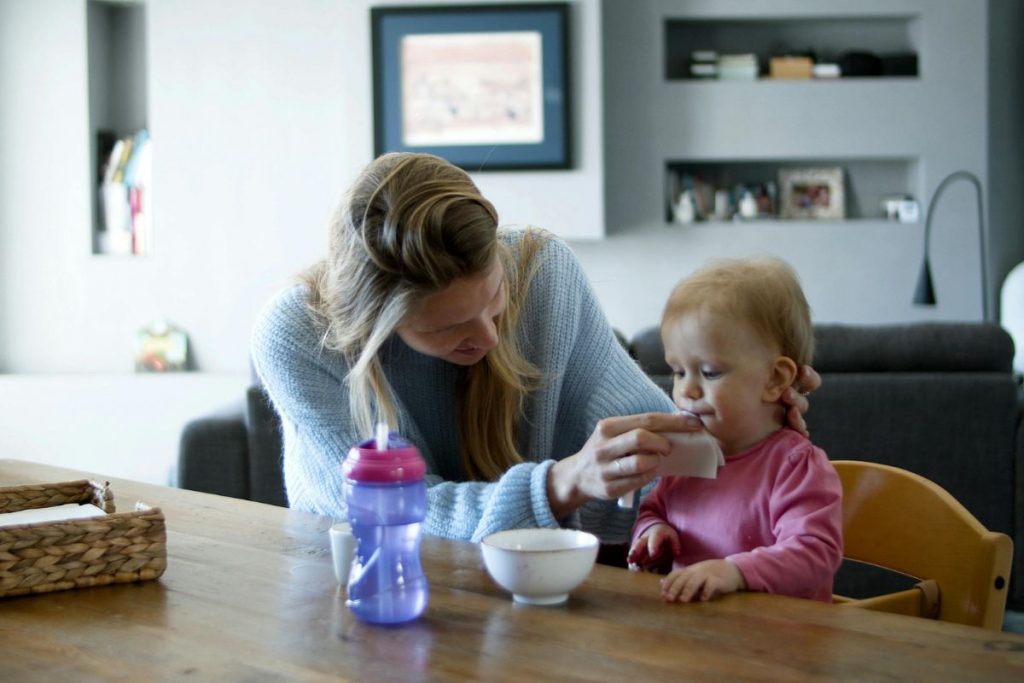
Your children’s caregiver can understand your child’s temperament and unique habits. Since a nanny can observe them closely and regularly, they can adjust how they approach your kids. Additionally, a nanny can adhere to your child’s nap time, meal preferences, and desired activities.
A nanny’s schedule is more flexible.
Suppose you’ll come home late due to work commitments. You can rely on your nanny to be there at home to care for your child. You don’t have to worry about picking up your kid from daycare and paying late fees.
A nanny can help around the house.
Your nanny can do minor chores when your child is asleep. They can wash and fold the kid’s clothes, prepare simple meals, and tidy up in the playroom. Having a pair of extra hands can help you manage your home and keep it as organized as possible.
The Downside of Having a Nanny
Hiring a nanny also has its drawbacks. You may want to check them out before you come to a final decision.
A nanny’s salary is pricey.
A nanny’s pay is often significantly higher than daycare’s fees. Their salary will depend on the number of wards, location, and whether they have certifications and glowing recommendations from past employers. If an individual nanny is out of your budget, you could join a nanny-share arrangement with neighbors or relatives so all your kids (around two to three) can share one caregiver.
A nanny has no backup.
It would be difficult to find an immediate replacement if your nanny gets sick or goes on vacation. It’s even worse if they decide to leave for good. If these scenarios happen, you must either stay home or ask (or beg) someone to care for your child.
The nanny may have a different parenting approach.
Your nanny may have a different parenting style, which can cause conflicts between you. You may disagree with how they discipline, teach, or play with your kids. Not being on the same page about many things may strain your relationship and negatively affect your child.
A nanny’s tardiness can mess up your schedule.
Not all nannies stay in their employer’s home. Some report for work in the morning and leave in the evening. The latter may mean that sometimes, they’ll arrive late for some reason. You have no control over traffic, their personal lives, or their PMS. When they don’t show up on time, you also don’t show up in time for your appointment.
There are no regulations for nannies.
Unlike daycare, nannies are not bound by any government regulations. They are not required to have certifications or early childhood education. It’s up to you to check that they have at least first-aid and CPR training.
You will need to deal with paperwork and legalities.
Hiring a nanny means you are going to be an employer. This responsibility comes with financial and legal concerns. As their boss, you are legally required to offer pension contributions, insurance, and a contract. You must also provide paid leave. Since paperwork and accounting are part of this arrangement, you might need to hire an accountant or a bookkeeper.
Is a Nanny Different from a Baby Sitter?
While both are hired to supervise and care for your little ones, a nanny is a hands-on and a more permanent fixture in your child’s life. They usually work in the long run. They have more responsibilities, including some minor chores. On the other hand, a babysitter is someone hired to care for your child for a shorter period – either one night or all weekends of the month.
Discovering Daycare
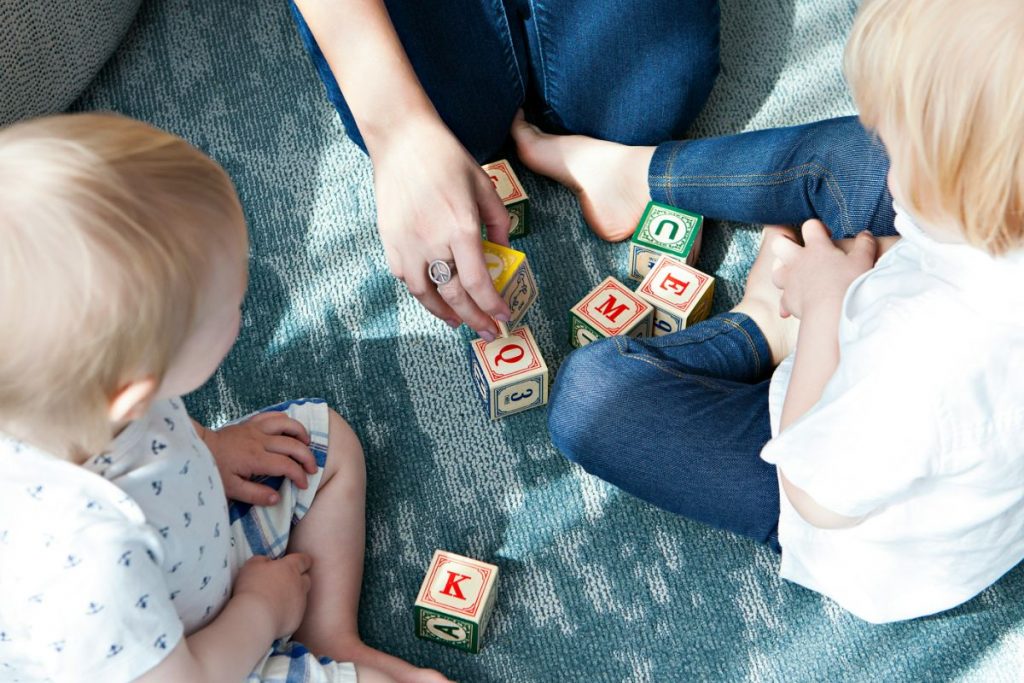
Daycare is a long-standing institution that parents have relied on since 1854. At present, around 6.4 million parents in the US send their children to daycare, making it a popular childcare option. Let’s find out if this is the best choice for your family.
The Benefits of Daycare
There is a long waitlist for slots in daycares across the country. In fact, parents have to wait for six months for their kids to get in. The following benefits could be the reason for this unbelievable demand.
Daycare supports a child’s cognitive development.
A daycare offers structured activities and academic lessons to help your child’s educational journey. A study from the Pediatrics journal reveals that kids benefit from a safe, healthy, and developmentally appropriate environment. They also thrive when they receive consistent and emotionally supportive care- something that daycares can offer. Children can also learn how to solve problems, regulate emotions, and express feelings in this setting.
Daycare fosters good behavior in children.
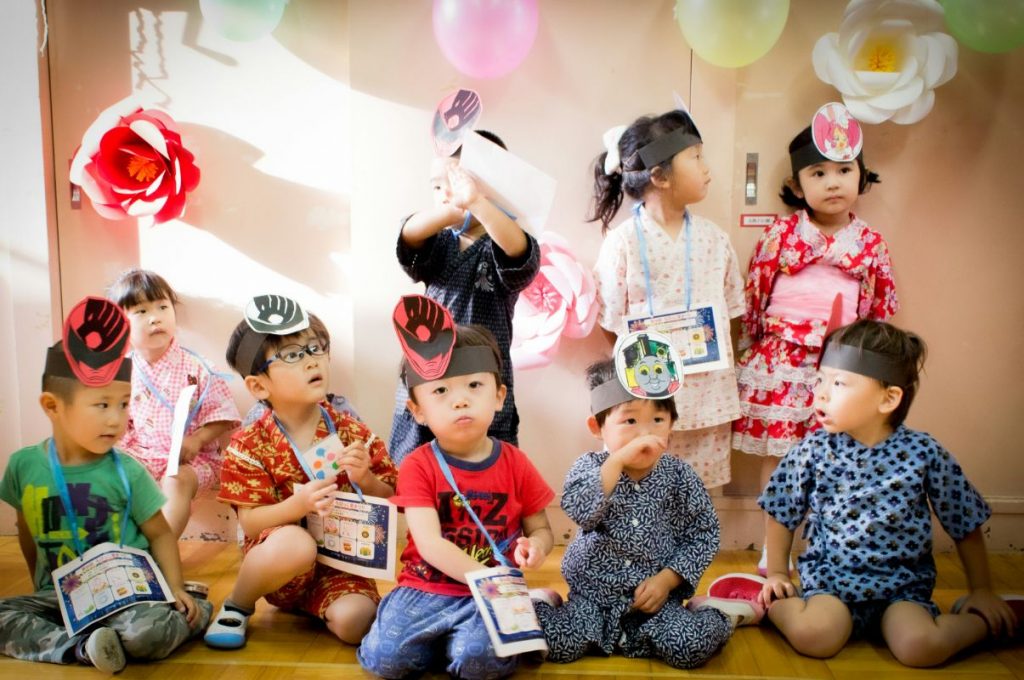
Kids learn to develop good social skills in daycare, including making new friends and dealing with different people. Contrary to what others believe, it’s very rare that children pick up bad behavior from daycare. A study even discovered that daycare kids have more patience when dealing with their playmates.
Daycare prepares a child for school.
A daycare’s educational programs can help prepare kids for school. The daily activities, including storytime and number drills, can improve their reading and math skills. A high-quality daycare can be a strong foundation for your child’s future academic success.
Children develop independence in daycare.
Your child can build their independence and sense of self in daycare. A few hours away from you allows them to explore their interests and have new experiences outside the home. They can also choose their own activities and engage with other kids without having adults arrange it for them. These situations nurture your child’s decision-making skills, sense of agency, and self-control.
Daycare boosts a child’s health.
Daycares can indeed be a breeding ground for germs. However, it is not something to be afraid of. Being exposed to bugs at an early age helps strengthen their immune system, protecting them from future illnesses. Less sick days mean they get to learn more. Additionally, most daycares serve nutritious meals, exposing them to good eating habits they can bring into adulthood. Lastly, a daycare’s regular health screening and immunization initiatives offer another level of protection for your precious ones.
The Drawbacks of Daycare
Daycare also has its share of cons. We have listed them down to help you weigh your childcare options.
Daycares lack personalized attention.
On average, a daycare’s staff-to-child ratio for 5-year-olds is one to ten. So, there is a big chance that your child won’t always get the attention he needs. The lack of personalized care can be a problem, especially if your child has special needs or has difficulty communicating.
A daycare can’t adjust to your schedule.
Daycare centers have fixed opening and closing hours, and you must abide by these schedules. They are not flexible enough to accommodate changes in your day. Let’s say you must deal with a work emergency and can’t pick up your child on time. You must find someone to do it for you – and we know how challenging that would be.
The quality of care may not be consistent.
Daycare staff may change occasionally, so you’re not assured your child will get consistent care. Your little one may have difficulty adjusting to different caregivers with varying personalities and parenting styles.
Daycares can be noisy and rowdy.
If your child is sensitive to noise, daycare may not be the best option. Several children participating in activities simultaneously can get chaotic, especially when excitement runs high. A day of peace may not always be possible.
You will have to worry about logistics.
Sending your kids to daycare means you will drive to and fro the facility. You must work your schedule around your child’s pick-up and drop-off times. This setup can be challenging, primarily if you work in varying shifts.
Nanny vs. Daycare: A Comparison of Costs
One of the considerations when choosing childcare is the cost. We’ve devised these comparison tables to help you visualize how a nanny or a daycare can set you back financially.
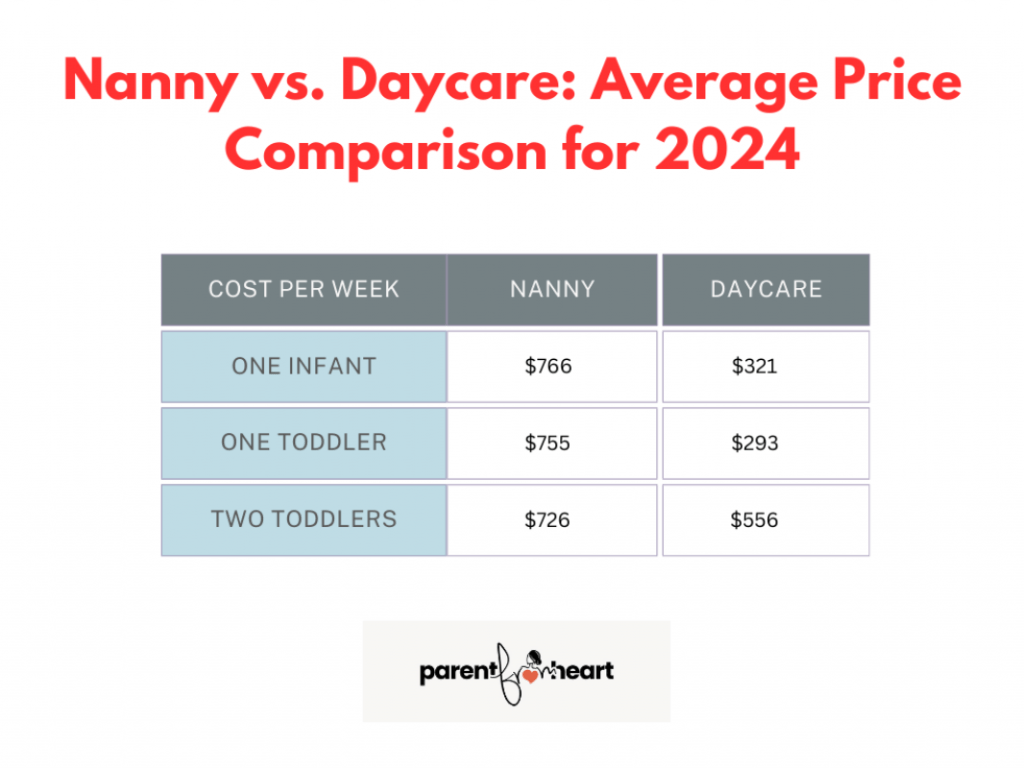
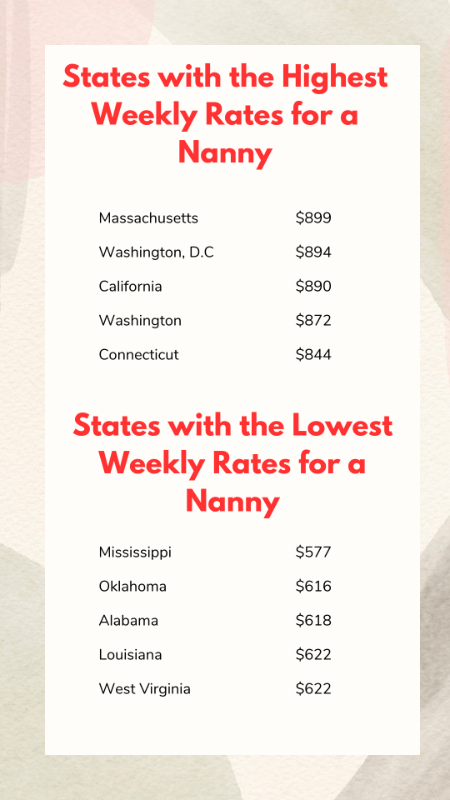
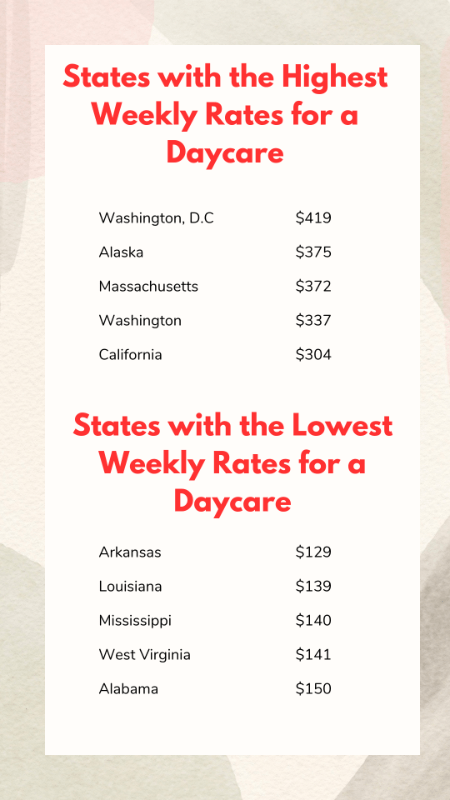
How to Pick the Best Child Care
There’s a nanny vs. daycare battle brewing, and it’s up to you, moms and dads, to choose the winner. Each option has ups and downs that we need to consider mindfully.
Firstly, a nanny offers a more personalized touch that’s comforting and familiar for your child. This arrangement is also more flexible and convenient. However, a modern Mary Poppins come at a premium cost.
Conversely, a daycare allows your child to interact with other kids through organized lessons. These activities strengthen their social skills, make them more independent, and expose them to diverse experiences. Knowing that daycare centers follow government regulations and have licenses can also be reassuring. On the other hand, a daycare’s schedule may not always align perfectly with the demands of your career.
5 Tips on How to Choose Your Child’s Caregiver
Check out these tips to help you on your child care search.
- Consider your unique circumstances, lifestyle, and priorities. Are you seeking personalized care and flexibility, or do you value socialization and structure?
- Assess your budget, household logistics, and your child’s temperament and developmental needs.
- Research prospective nannies or daycare centers thoroughly. Seek recommendations from online parenting forums, relatives, friends, and colleagues. Jenny from Finance may have some referrals for you.
- Check the credentials of each option and do background checks.
- Visit daycare facilities with your child to see how they react to it. Check on cleanliness, safety measures, and staff involvement.
- Trust your instincts and communicate your expectations to the nanny or daycare staff to ensure your parenting philosophies align with theirs.
There’s a Childcare Option for You
There is no perfect solution to this long-standing parenting dilemma. Every family is different, and what works for the Smiths may not work for you. Find comfort knowing you choose out of love and the desire to provide the best possible care for your precious one.
Do you have a nanny search adventure to share? How about daycare hits and misses? We would love to hear all about them. Every week we look forward to reading your stories so keep them coming!
